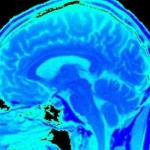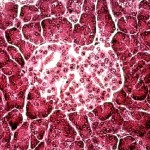Asparagus may have anti-diabetic benefits

A new study published in the British Journal of Nutrition suggests that eating asparagus can help control type 2 diabetes.

A new study published in the British Journal of Nutrition suggests that eating asparagus can help control type 2 diabetes.

In a recent study in the Journal of the Academy of Nutrition and Dietetics, cinnamon was reported to aid in regulating blood glucose levels in normal-weight and obese adults.

An implantable sensor that allows diabetics to more effectively monitor their blood-sugar levels is a step closer to reality, thanks to a researcher at Texas A&M University who is developing technology aimed at enabling these sensors to remain functional in the body for an extended period of time.

Few diabetes classes ever address the toil that diabetes takes on another of our organs: our brains. Unfortunately, the brain isn’t magically spared from the ravages of high or low blood glucose.

A report in the December issue of the journal Diabetologia says that a study of 1,000 active-duty military personnel who later developed type 1 diabetes showed that low levels of vitamin D significantly increased the chances of developing the disease

A diabetes specialist and Artificial Intelligence expert have collaborated to test the prototype of an artificial pancreas. Should a planned clinical study and clinical trial support the excellent ‘simulated’ results obtained so far.

A new study suggests that increasing the amount of sleep that teenagers get could improve their insulin resistance and prevent the future onset of diabetes.

The eye drug Lucentis (ranibizumab injection), approved in August to treat diabetic macular edema, may also be useful in people with diabetic retinopathy, according to research

A study reports that a team of researchers in South Korea have successfully engineered islet cell clusters (ICCs) that will improve pancreatic islet transplantation and offer promise for curing diabetes mellitus.

Danish researchers report that high levels of transferrin may contribute to the destruction of insulin-producing beta cells in the pancreas. Transferrin is a glycoprotein that binds with iron and transfers it to cells.

When people with Type 2 diabetes are diagnosed with cancer—a disease for which they are at higher risk—they ignore their diabetes care to focus on cancer treatment, according to new Northwestern Medicine® research.

As part of their ongoing research Joslin Diabetes Center scientists have demonstrated how a genetic variant associated with type 1 diabetes and other autoimmune diseases influences susceptibility to autoimmunity

A new, lab-created antibody that mimics the action of a naturally occurring molecule causes weight loss in monkeys, researchers report.

Pregnant women with Type 2 diabetes have a better chance at good outcomes than those with Type 1, particularly if they receive proper care before and during their pregnancy.

Scientists at Karolinska Institutet and Karolinska University Hospital show that an enzyme called arginase might have a key part to play in the development of cardiovascular disease in patients who already have type II diabetes.

A new study by University of Southern California (USC) and University of Oxford researchers indicates that large amounts of high fructose corn syrup (HFCS) found in national food supplies across the world may be one explanation for the rising global epidemic.

A new study has found that topically applied simvastatin accelerates wound healing in diabetic mice, suggesting important implications for humans with diabetes.

After gastric bypass surgery, diabetes goes away for some people — often even before they lose much weight. So does that mean gastric surgery “cures” diabetes?

Bariatric surgery induces a significant and lasting improvement in diabetic nephropathy, with nearly 60% of patients with this condition achieving remission five years after surgery,

Researchers with University of California, Davis, identified 22 observational studies comparing the prevalence of diabetes among patients with psoriasis with individuals serving as controls, according to the abstract.